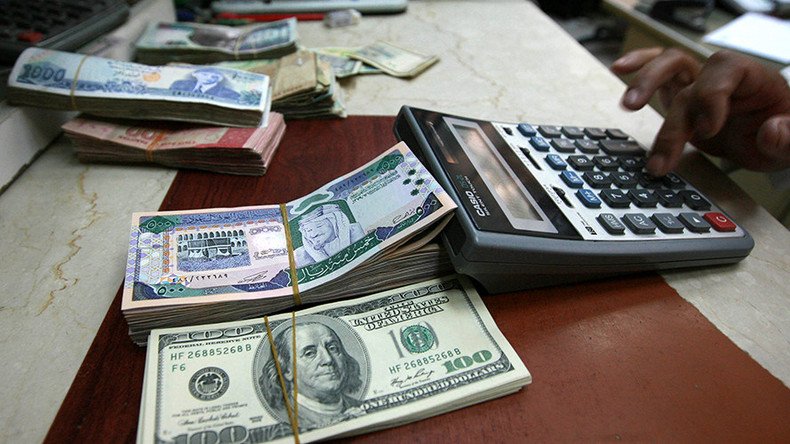Saudi Arabia continues to burn through foreign reserves

Riyadh’s foreign reserves dropped to $555 billion, down $6 billion in July, as low oil prices continue to eat up the country's assets abroad.
Saudi Arabia’s foreign holdings are 16 percent down on the same month in 2015 and are at their lowest level since February 2012. The holdings peaked in August 2014 at $737 billion falling with oil prices.
The assets are likely to consist of US dollars, securities like US Treasury bonds and deposits with banks abroad. The deposits reduced by $8 billion to $125 billion in July, but holdings in foreign securities grew by $2 billion to $371 billion after 10 straight months of contraction.
In an attempt to corner the global market and oust high-cost oil producers like US shale, Saudi-dominated OPEC introduced predatory prices for its oil, pushing crude from $114 a barrel in the summer of 2014 to the current $50.
Last year, the Saudi budget deficit hit an historic high of $98 billion. Riyadh expects this figure to drop to $87 billion. To cover some part of the deficit, the government has been borrowing domestically and abroad.
READ MORE: Saudi Arabia reports record high $98bn budget deficit on low crude prices
Despite this, the Kingdom has no plans to cap production, pumping a record 10.67 million barrels of oil per day in July.
Saudi Arabia also expects to issue its first international bonds in October to raise at least $10 billion. Citigroup, HSBC and JPMorgan Chase were hired as global coordinators for the sale, according to Bloomberg.













